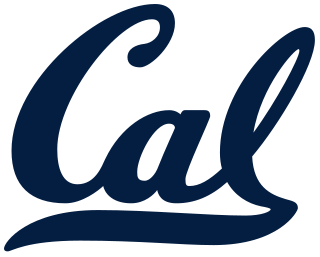
The NCAA Men's Water Polo Championship is an annual tournament to determine the national champion of NCAA men's collegiate water polo. Beginning in 1969, it has been held every year except 2020, when it was postponed to March 2021 because of the COVID-19 pandemic. With a limited number of NCAA water polo programs at the national level, all men's teams, whether from Division I, Division II, or Division III, are eligible to compete each year in the National Collegiate tournament. The tournament was expanded from a four-team bracket in 2013 by adding two play-in games that are contested by the bottom four seeds, effectively creating a six-team bracket with a first-round bye for the top two teams. This makes it the sport with the fewest teams reaching the NCAA tournament; this is because there are only 43 men's water polo teams between all three NCAA divisions.

The NCAA Women's Water Polo Championship has existed since the 2001 season. Seven conferences have teams competing in women's water polo: the Big West Conference, the Collegiate Water Polo Association (CWPA), the single-sport Golden Coast Conference, the Metro Atlantic Athletic Conference (MAAC), the Mountain Pacific Sports Federation (MPSF), the Southern California Intercollegiate Athletic Conference (SCIAC) and the Western Water Polo Association (WWPA). Some teams compete at Division III either as members of the Southern California Intercollegiate Athletic Conference or independently. Teams qualify by either winning their respective conference tournament or receiving one of the few at large bids available. Unlike most NCAA sports, only one National Collegiate championship is held each season with teams from Division I, Division II, and Division III competing together.

The UCLA Bruins are the athletic teams that represent the University of California, Los Angeles. The Bruin men's and women's teams participate in NCAA Division I as part of the Pac-12 Conference and the Mountain Pacific Sports Federation (MPSF). For football, they are in the Football Bowl Subdivision of Division I. UCLA is second to only Stanford University as the school with the most NCAA team championships at 121 NCAA team championships. UCLA offers 11 varsity sports programs for men and 14 for women.

The California Golden Bears are the athletic teams that represent the University of California, Berkeley. Referred to in athletic competition as California or Cal, the university fields 30 varsity athletic programs and various club teams in the National Collegiate Athletic Association (NCAA)'s Division I primarily as a member of the Pac-12 Conference, and for a limited number of sports as a member of the Mountain Pacific Sports Federation (MPSF). Over the course of the school's history, California has won team national titles in 13 men's and 3 women's sports and 113 team titles overall. Cal athletes have also competed in the Olympics for a host of different countries. Notable facilities used by the Bears include California Memorial Stadium (football) and Haas Pavilion. Cal finished the 2010–11 athletic season with 1,219.50 points, earning third place in the Director's Cup standings, the Golden Bears' highest finish ever. Cal did not receive any points for its national championships in rugby and men's crew because those sports are not governed by the NCAA. Cal finished 12th in the 2014-15 standings.

The San Jose State Spartans are the intercollegiate athletic teams that represent San José State University. SJSU sports teams compete in the Mountain West Conference at the NCAA Division I level, with football competing in the Football Bowl Subdivision (FBS).
The Spieker Aquatics Center is a 2,500-capacity stadium in Los Angeles, California used by UCLA water polo, swimming, and diving teams. The $14-million center was built in 2009 and is named for Tod and Catherine Spieker. Tod was a student-athlete at UCLA, competing from 1968 to 1971 in swimming.

The Cal State East Bay Pioneers are the athletic teams that represent California State University, East Bay, located in Hayward, California, in intercollegiate sports as a member of the Division II level of the National Collegiate Athletic Association (NCAA), primarily competing in the California Collegiate Athletic Association (CCAA) for most of their sports since the 2009–10 academic year; while its women's water polo teams compete in the Western Water Polo Association (WWPA). The Pioneers previously competed in the California Pacific Conference of the National Association of Intercollegiate Athletics (NAIA) from 1998–99 to 2008–09.

The 1995 NCAA Men's Water Polo Championship was the 27th annual NCAA Men's Water Polo Championship to determine the national champion of NCAA men's collegiate water polo. Tournament matches were played at the Avery Aquatic Center in Stanford, California during December 1995. The tournament field decreased for the first time this year, shrinking from 8 to 4 teams.

The 1997 NCAA Men's Water Polo Championship was the 29th annual NCAA Men's Water Polo Championship to determine the national champion of NCAA men's collegiate water polo. Tournament matches were played at the International Swimming Hall of Fame Aquatics Complex in Fort Lauderdale, Florida, during December 1997.

The 1998 NCAA Men's Water Polo Championship was the 30th annual NCAA Men's Water Polo Championship to determine the national champion of NCAA men's collegiate water polo. Tournament matches were played at the Marian Bergeson Aquatic Center in Newport Beach, California during December 1998.

The 2001 NCAA Men's Water Polo Championship was the 33rd annual NCAA Men's Water Polo Championship to determine the national champion of NCAA men's collegiate water polo. Tournament matches were played at Avery Aquatic Center in Stanford, California during December 2001.

The 2002 NCAA Men's Water Polo Championship was the 34th annual NCAA Men's Water Polo Championship to determine the national champion of NCAA men's collegiate water polo. Tournament matches were played at the Burns Aquatic Center on the campus of Loyola Marymount University in Los Angeles, California during December 2002.

The 2006 NCAA Men's Water Polo Championship was the 38th annual NCAA Men's Water Polo Championship to determine the national champion of NCAA men's collegiate water polo. Tournament matches were played at the Burns Aquatics Center at Loyola Marymount University in Los Angeles, California from December 2–3, 2006.

The 2007 NCAA Men's Water Polo Championship was the 39th annual NCAA Men's Water Polo Championship to determine the national champion of NCAA men's collegiate water polo. Tournament matches were played at the Avery Aquatic Center in Stanford, California from December 1–2, 2007.

The 2015 NCAA Men's Water Polo Championship was the 47th annual championship to determine the national champion of NCAA men's collegiate water polo. Tournament matches were played at the Spieker Aquatics Center at UCLA in Los Angeles, California from December 5–6, 2015. UCLA defeated USC for the 2015 title 10–7.

The 2001 NCAA Women's Water Polo Championship was the first annual tournament to determine the national championship of NCAA women's collegiate water polo. The single elimination tournament was played at the Avery Aquatic Center in Stanford, California during May 2001.

The 2016 NCAA Women's Water Polo Championship was the 16th annual tournament to determine the national champion of NCAA women's collegiate water polo. Tournament matches were played at the UCLA Spieker Aquatics Center in Los Angeles, California from May 13–15, 2016. The USC Trojans defeated the 2015 champions, the Stanford Cardinal, 8-7 to win their fifth national title, while finishing the season 26-0.

The 2020 NCAA Men's Water Polo Championship occurred from March 18–21, 2021 in Los Angeles, California at the Uytengsu Aquatics Center. This was the 52nd NCAA Men's Water Polo Championship. Six teams participated in this championship. Although this was the 2020 championship, it was played in 2021 because of the COVID-19 pandemic. The rankings before the tournament: No. 1 Stanford, No. 2 California, No. 3 UCLA and No. 4 USC.

The 2021 NCAA National Collegiate Women's Water Polo Championship was the 19th edition of the NCAA Women's Water Polo Championship, the annual tournament to decide the championship of NCAA women's collegiate water polo. The tournament was held May 14–16, 2021, at the Spieker Aquatics Center in Los Angeles, California, hosted by the University of California, Los Angeles (UCLA).

The 2021 NCAA Men's Water Polo Championship occurred from December 4–5, 2021 in Los Angeles, California at the Spieker Aquatics Center. This was the 53rd NCAA Men's Water Polo Championship. Seven teams participated in this championship. Opening round game-one was played at Princeton University. The UCLA Bruins were the defending national champions and the 2021 Mountain Pacific Sports Federation (MPSF) champions. The rankings before the tournament: No. 1 University of California, No. 2 University of Southern California, No. 3 University of California Los Angeles, No. 4 Stanford University, No. 5 Long Beach State University.




